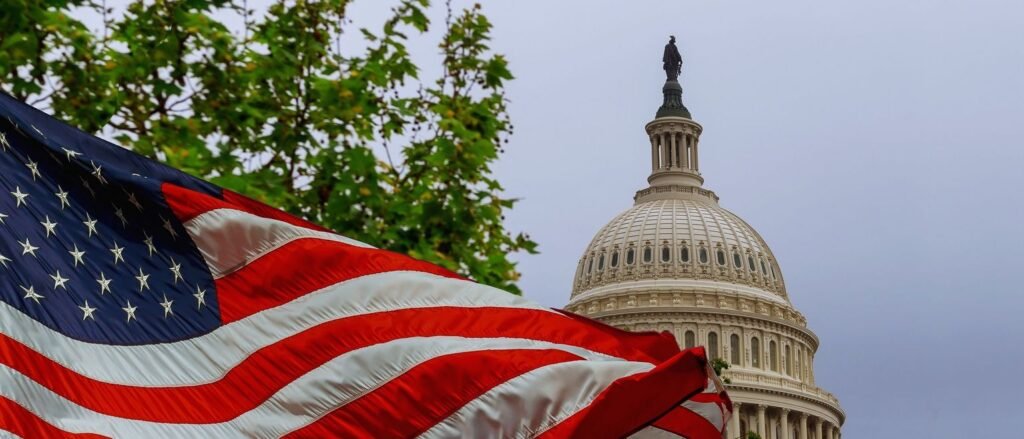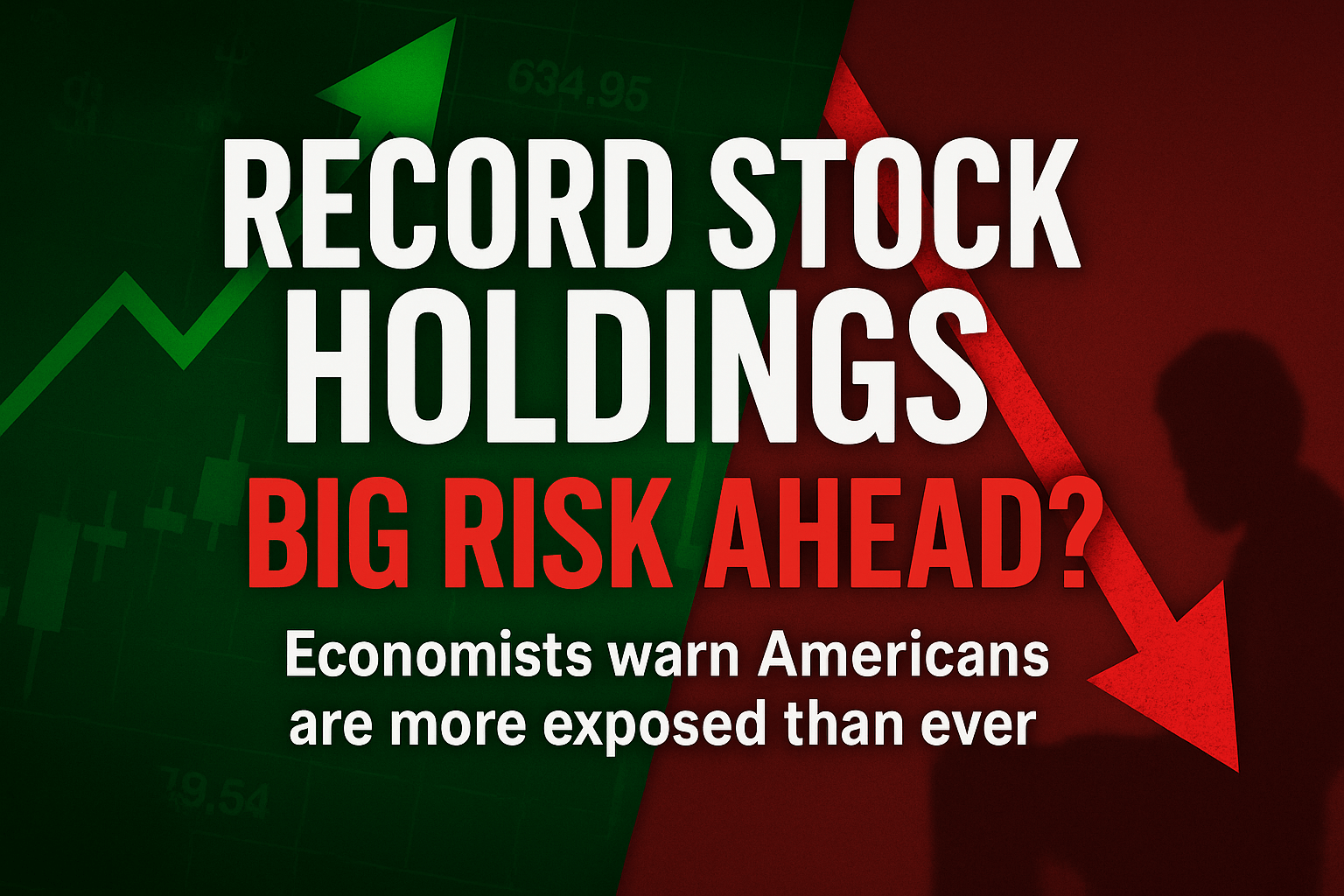Americans’ record stock holdings hit 45% of assets. Economists warn of heightened risks as markets surge amid AI boom and fragile economy.
Americans have more money in stocks than ever before, and economists warn that’s a “bright red flag.” Direct and indirect stock holdings — including mutual funds and retirement plans — accounted for an all-time high of 45% of households’ financial assets in the second quarter, according to Federal Reserve data.
The record-high stock ownership raises concerns about whether a market downturn could significantly impact Americans’ finances, particularly in an economy facing a fragile labor market and persistent inflation.
Drivers Behind the Milestone
The surge in stock holdings is fueled by multiple factors: record-high stock prices have boosted the value of investments, more Americans are directly participating in the stock market, and retirement plans like 401(k)s that invest in equities have grown in popularity.
While record-high stocks allow more people to benefit from corporate gains, “because so many people now own and have so much of their money in stocks, the market has more influence on the economy, for good or ill,” said Jeffrey Roach, chief economist at LPL Financial.
Also Read: Buffett Indicator Flashes Warning as Stock Market Hits Record
Echoes of the Dot-Com Era
Stock ownership has now surpassed the levels of the late 1990s, just before the dot-com bubble burst, noted John Higgins, chief markets economist at Capital Economics. “That should ring alarm bells, even if the buoyant stock market keeps rising for a while amid enthusiasm for AI,” Higgins said.
He added: “Indeed, our forecast is that the S&P 500 will make further gains this year and next. But the current very high share of equities is a red flag to watch closely.”

The AI Boom and Market Concentration
The S&P 500 has rallied 33% since hitting a low on April 8, and it is up 13% since January 1, notching 28 record highs this year. The AI boom has played a central role in fueling the rally.
Big tech companies like Nvidia have surged, lifting major indexes. The so-called “Magnificent Seven” — Alphabet, Amazon, Apple, Meta, Microsoft, Nvidia, and Tesla — have accounted for roughly 41% of the S&P 500’s gains this year, according to Howard Silverblatt, senior index analyst at S&P Dow Jones Indices.
The group also makes up 34% of the S&P 500’s total market value, leaving investors heavily exposed to just a handful of enormous companies.
Risks for Returns and Market Stability
History shows that when stock ownership levels are at record highs, the risk of a downturn and the likelihood of below-average returns increase. “Investors shouldn’t expect the same magnitude of returns that we’ve seen during the last decade to repeat,” said Rob Anderson, US sector strategist at Ned Davis Research. “Going forward, over the next 10 years, there’s probably going to be a downshift in returns.”
Foreign investors’ share of US stocks also hit a record high in the second quarter, further highlighting the global weight of US equities.
A K-Shaped Economy
While Wall Street celebrates record highs, concerns are rising about a “K-shaped economy,” in which wealthier Americans thrive while lower-income households struggle. “Those who have a high degree of wealth in the stock market feel like they’re doing extraordinarily well,” said Michael Green, chief strategist at Simplify Asset Management. “Those who don’t, who are largely tied to employment as their primary asset, feel much more constrained in today’s society.”
The stock market’s strength has boosted the net worth of the wealthy, fueling spending that in turn has helped drive economic growth. Roach at LPL Financial explained that the buoyant market is “propping up the net worth of the wealthy, fueling their own spending.”
According to Moody’s Analytics chief economist Mark Zandi, the top 10% of earners — those making more than $353,000 annually — accounted for more than 49% of consumer spending in the second quarter, the highest share on record since 1989.
Fragile Foundations Beneath the Rally
Despite these gains, the broader economy remains on shakier ground. Lower-income Americans are increasingly strained, and a market slump could spook wealthy households whose spending has been supporting growth. “The stock market becomes a bigger economic driver when you’ve got that much exposure,” said Kevin Gordon, senior investment strategist at Charles Schwab.
“There is a bigger risk that to the extent you get a protracted downturn in the market, that starts to weigh on household spending, and starts to weigh on the psychology in particular of people up the wealth spectrum,” Gordon added.




